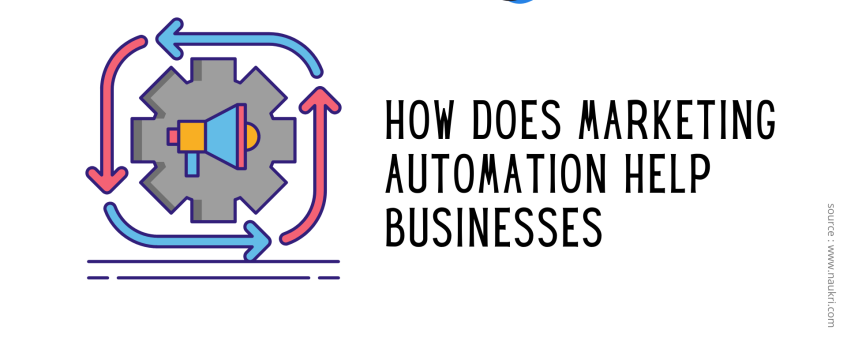-
04
Jan
Marketing Automation
Marketing automation refers to the process of automating repetitive activities across all digital marketing channels. The process leverages marketing automation tool (s) to increase efficiency in marketing efforts, improve the customer journey and so on.
Businesses can use marketing automation software to communicate to customers at any stage of the sales funnel. This is done to build and nurture customer relationships, deploy solutions to overcome why qualified prospects are not converting to leads, improve productivity across sales and marketing teams, etc. All these factors result in increasing the bottom line of a business through maximum efficiency.
Marketing automation also addresses the growing adoption of digital marketing channels across the world. With increasing competition and rising technological trends, even small to medium-size businesses are adopting marketing automation strategies.
Why Marketers Need Marketing Automation?
Have a look at the top challenges that businesses are facing without marketing automation. You will also see how marketing automation helps overcome the challenges.
Email Deliverability
Email deliverability lets marketers measure the success of sending the email to the recipient’s inbox. It depends on factors such as the sender’s reputation, infrastructures – IP and Email Service Providers, Authentication Frameworks, etc.
When businesses do not use marketing automation software, it is next to impossible to know if emails are successfully delivered. According to Statista, ‘spam messages accounted for 45.37 percent of e-mail traffic in December 2021’.
There are specific tools such as SpamTitan that show you important metrics such as Sender Reputation. But there are other factors to consider. They are good subject lines, email content, a healthy updating list of email recipients, etc.
Now, Email Marketing automation software can help in these aspects. Additionally, they also help you optimise your emails by providing authentication checkers, mobile-responsive email design templates and so on.
Lead Management – Dealing with Non-Converting Leads
Lead generation is a multi-stage process. And 80% of consumers are more likely to purchase when a brand offers personalised experiences (Epsilon research).
Leads won’t convert into sales when there is a disconnect between marketing and sales teams. Usually, leads are generated from a variety of sources – websites, campaigns, etc. These need proper categorisation after they are collected. That is, some leads need to progress to sales and some to nurturing.
Now, marketing automation allows marketers to filter such data automatically. Without it, marketers make errors by passing all leads to the sales process instead of nurturing the correct ones. According to Marketing Sherpa, due to the lack of lead nurturing, 79% of leads do not convert into sales.
Tracking User Engagement Across All Channels in Real-Time
Marketing automation platforms come with a variety of features for different types of digital marketing needs. As you saw above, nurturing leads becomes easy with marketing automation. The platforms can be used for automating emails, mobile apps, and Social Media campaigns.
And since data is collected and filtered automatically, it is easier to engage website or mobile app users in a unified way. All marketers have to do with marketing automation software is to set up campaigns and workflows. They can be common workflows including welcome emails, cart abandonment reminders, etc.
These steps improve efficiency in campaigns across all marketing channels. It also means that running multi-channel campaigns will take less effort with a marketing automation platform.
In general, marketing automation platforms allow communicating with the right people at the right time through the right digital marketing channel. As personalisation is the buzzword today, it is essential to send the right messages at the most critical time when the customer is about to buy or wants to know more about the product/service.
Challenge of Integrating Marketing Automation Software
While the market size of marketing automation platforms is increasing, more and more companies are adopting it. But such tools are not a guarantee of instant revenue growth or success in marketing campaigns. Teams from marketing and sales need to be trained to use them. This is one major challenge among users as they do not have the right expertise and they may end up misallocating resources or communicating wrongly.
